The decades old Tamils' demand for a share in the power and equal rights in Sri Lanka remains unfulfilled. At this juncture, it is imperative to assess to what extent the ongoing negotiations between Tamil National Alliance (TNA) and Sri Lankan government have progressed in the direction of arriving at a political solution to address the Tamil national question.
Rajavarothiam Sampanthan leads the Tamil National Alliance (TNA), which is a Sri Lankan Tamil political alliance formed in November 2001 just prior to 2001 elections. It comprises All Ceylon Tamil Congress (ACTC), Eelam People's Revolutionary Liberation Front (EPRLF- Suresh Faction), Illankai Tamil Arasu Katchi (ITAK), Tamil Eelam Liberation Organisation (TELO), and Tamil United Liberation Front (TULF). Even though TNA has been accused of being pro-LTTE – articulating and supporting its position – yet it has established itself as an umbrella organisation representing the interests and aspirations of Sri Lankan Tamils following the defeat of LTTE. The electoral outcomes to a certain extent reflect the same. In the 2001 parliamentary elections, the TNA obtained 15 seats in the Tamil majority electoral districts of Ampara, Batticola, Jaffna, Trincomalle and Vanni electoral districts in the North and East of Sri Lanka, besides Colombo and one seat in the National List. TNA secured 22 seats in the same electoral districts except Colombo and two seats to the National List in the 2004 parliamentary elections. But TNA obtained 14 seats in the 2010 general elections in the Tamil majority areas of North and East of Sri Lanka and one seat to the National List. The decline in numbers can be attributed to lower voter turn out – 75. 96 per cent in 2004 against 61. 26 per cent in 2010 – as large number of Tamils were displaced or held in refugee and detention camps during the elections. In the recently concluded March 2011 local authorities elections, TNA secured 12 Urban Councils and Predesiya Sabhas apart from 76 local bodies. But local body elections in Jaffna, Trincomalle and Vanni areas are yet to be conducted. It gains significance as the TNA secured more seats than other political dispensations except Rajapaksa led United Peoples Freedom Alliance (UPFA).
Although the negotiations between TNA and Sri Lankan government were meant to be ‘structured regular dialogue’ every fortnight, hitherto, there have been only six rounds of negotiations since January 2011. The first round of negotiations took place on 10 January; the second on 3 February; the third on 18 March; the fourth on 7 April; the fifth on 29 April and the sixth on 25 May – the seventh round is scheduled for 23 June. R. Sampanthan, K. Kanag Isvaran, Mavai Senathirajah, Suresh Premachandran and M. A. Sumanthiran represented the TNA. Since former Prime Minister Ratnasiri Wickramanayake has resigned, Professor Rajiv Wijesinghe MP has replaced him, Irrigation Minister Nimal Siripala de Silva, and External Affairs Minister G. L. Peiris and Sajin de Vass Gunawardane represented the government in the negotiations.
The principal demand of the TNA in the negotiations is a federal solution. In an interview to The Island, TNA leader R. Sampanthan stated that it was working for a political solution with a ‘substantial political autonomy for Tamil and Muslim people to determine their affairs in their areas of historical habitation within the framework of undivided and unified Sri Lanka’. However, in the initial rounds of negotiations, the TNA negotiated to improve the situation of Internally Displaced Persons (IDP), clearing of landmines and screening of suspected LTTE cadres. Further, the TNA also raised the issue about the identities, whereabouts and time of detention of the civilians who were fleeing the conflict zones to government-controlled territory during January 2009. Apart from these, the TNA has also sought information in regard to resettlement of people in High Security Zones (HSZ) in Jaffna, North; Sampur and Muttur in the East as well as on the fate of about 850 Tamil political prisoners and ex-LTTE combatants held in prisons in various parts of the country and in rehabilitation camps.
There are about 11,000 youth still held in the rehabilitation camps. In addition, the Rajapaksa government is yet to dismantle the HSZ despite its assurances to the TNA during negotiations. Nor it has made public of the data base on ex-LTTE cadres so far, which is available with the Terrorist Investigation Division (TID) office in Vavuniya. There is no questioning that the Sri Lankan government has facilitated the rehabilitation and resettlement of displaced persons to a certain extent with assistance from India and other countries. According to Sri Lankan Ministry of Resettlement Situation Report released on 5 April 2011, so far 253, 099 out of estimated 280, 000 IDPs have been resettled or returned or released from the camps. But its reluctance and refusal to part with details about missing persons and detainees has not only affected the progress of the negotiations, but also created apprehensions about the Sri Lankan government’s sincerity in resolving the Tamil question.
On the issue of devolution, the Sri Lankan government is yet to articulate its position. However, the Sri Lankan president Rajapaksa has categorically stated that police powers would not be shared with provinces. Further, he has recently reiterated that 'he would not give anything that he had not given to the LTTE leader Velupillai Prabhakaran'. But TNA has been consistent in its demand which goes beyond 13th Amendment: dropping of Concurrent List in the 13th Amendment* to the Constitution. The Concurrent List deals with issues such as health, land, road development, and police powers. Since the present structure provides additional authority to central government to exercise control over provincial councils, it reduces the power exercised by Provincial Councils. Consequently, it goes against the spirit and functioning of devolution or federal system. On the other hand, although the Sri Lanka government has rejected TNA’s proposal, it agreed to remove certain items from the Concurrent List.
Further, despite six rounds of negotiations, hardly any progress has been made in the core demands of the Tamil community – a federal solution. To cut it short, the bone of contention remains over land and police powers. Even though the Tamil community has relinquished its secessionist demands and opted for a federal solution, the competitive Sinhala politics apparently remains oblivious to changed reality of post-LTTE polity. In addition, Sinhala hardliners are also opposed to imposed solution (read India's intervention), the 13th Amendment, to the problem. But Sinhalese hardliners logic fails to justify the discriminatory system. The continuous failure of the existing unitary system to address the grievances of a both Sinhalese majority community as well as Tamil minority community in greater parts of the country led to Janatha Vimukthi Peramuna (JVP) insurrections in the 1970s and 1980s and the insurgency movements of LTTE and other rebel groups. Therefore, there is a need to change the unitary system through a federal arrangement, in whatever form it suits Sri Lanka's situation, to restore distributive justice and address the six decades long grievances of the Tamil minorities. However, keeping the past pattern of talks in view not much is likely to be achieved in the next round of talks due this month. What is necessary is a change in the mind set of the Sri Lankan leadership.
*The 13th Amendment to the Sri Lankan Constitution was passed in the Sri Lankan Parliament on 14 November 1987 following Indo-Sri Lanka Accord of 1987. The main provisions are: a. Sinhala, Tamil shall be an official language of Sri Lanka, with English as a link language, b. the North and East to be merged into one provice, subject to referendum, c. provincial councils to be elected every five years, d. a governor with executive powers to be appointed by the president in each province. The Supreme Court of Sri Lanka declared on 16 October 2006 that the presidential proclamations of 1988, which effected the merger, as null and void and North Eastern Province was demerged on 1 July 2007.
-----------------------------------------
Published Date : 10th June, 2011



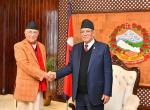
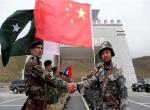

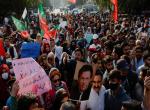
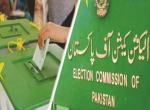
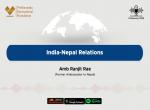
Post new comment